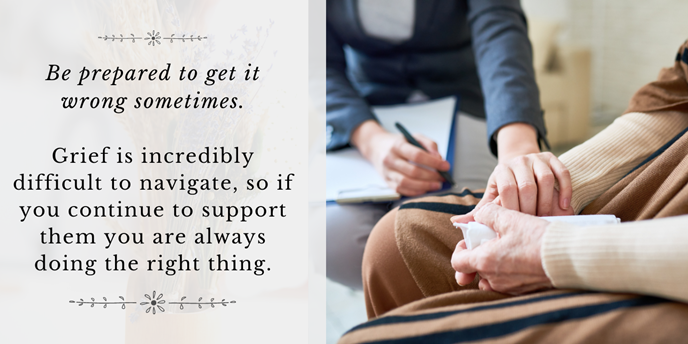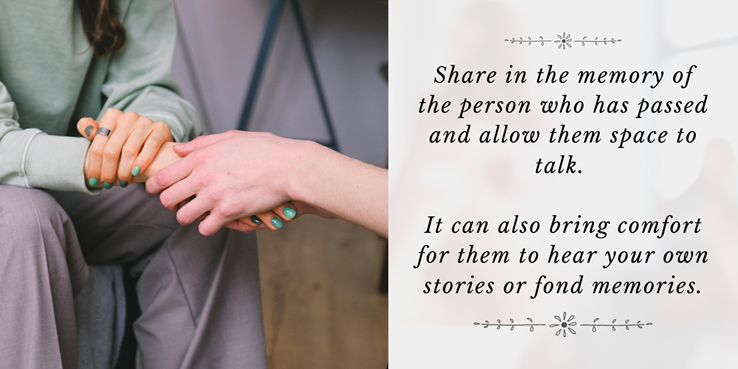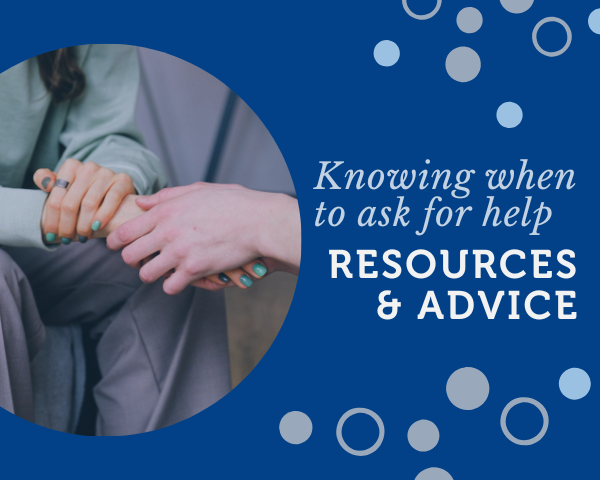"I Don't Know What to Say" - Supporting a Loved One Who Has Lost Someone Close to Them
As no two people are the same, everybody reacts differently to the loss of someone they were close to. Grief is one of the most life-changing and complex emotions we feel, and there can be no definitive answer as to exactly what to say to someone who is grieving. What we can do is bear in mind a few important ideas when we speak to them to help guide our conversations. At all times it’s important to remember that we are not just aiming to listen, but to understand and be receptive to how someone might be processing their grief.

Acknowledging the loss and making your support known
The first stages of grief are some of the hardest. It can be extremely difficult to come to terms with what’s happened, but it is an important step. Accepting that someone is no longer going to be in our lives is extremely tough, so it is important to understand the difficulty your loved one will be having processing their own emotions. Offer your condolences and some heartfelt words of comfort and listen to how they react.
Respecting their wishes
Those in the initial stages of the grieving process might not want company and would rather be alone, but in this case a simple ‘if you need me, I’m here’ is enough. It’s important to check in on them and remind them that support is there, and not to take a no personally. People will begin to return to normal life at their own pace.
Providing different kinds of support to someone who is grieving
Kind words can mean a lot, and reassurance from other loved ones is important in helping people recover from a loss, but there are lots of ways people can need help. When something as draining as grief becomes a part of our lives, there’s far less room to remember to take care of the little things.
People’s physical surroundings can become a representation of their mental health. They can be forgetting to look after themselves, or something isn’t being done around the house – it’s good to offer support with these things if you notice them, or ask beforehand whether they need any help with shopping, cleaning or other parts of their routine that might be suffering.
It is the right words, but also the physical acts that provide help, comfort and reassurance that will make you a supportive friend.

Don’t hold your own feelings back
Some people can instinctively think helping someone requires closing off your own emotions to be strong for them. It helps to be reliable and there for people, but if you are suffering from the loss too, or are finding it hard to see them in this way, don’t hide it.
The emotional response may even provide comfort for a grieving loved one. Suffering from a bereavement can feel at times as though you are alone in the world, and others sharing in your pain can make you feel as though you have someone who understands what you are really going through. Remember that you still want to minimise somebody’s stress, so it is always best to follow their lead when talking about these subjects.
Knowing when to seek help
We all want to be able to help our loved ones solve their problems, but sometimes it’s just beyond our abilities to do so, or we feel as though professional support could help them even more. When something like this happens, speaking to someone who is trained in the best methods for dealing with grief and can deliver this support in a structured setting may be the best option.
Depending on the situation, there are a number of different sources of counselling and other support available to choose from. See this list from Marie Curie for details on the different options, but a good place to start for anyone is visiting their GP and discussing the possibility of bereavement counselling.




